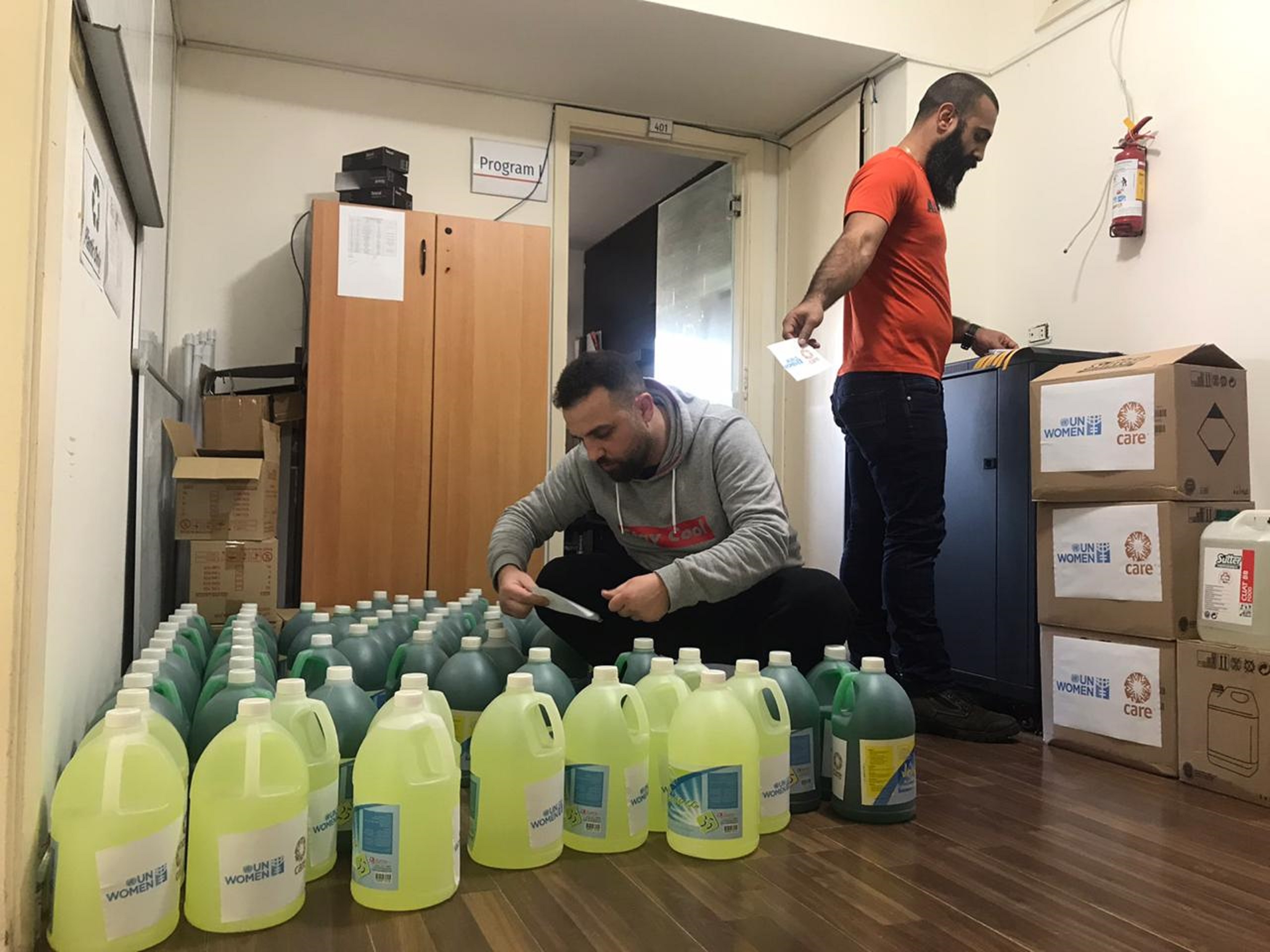Supporting women’s centers to stay open amidst COVID-19 in Lebanon
Date:

"Now I can go to work safely," says Nadia Darwish, Manager at the Social Development Center (SDC) of Ghubairi, Lebanon, a centre run by the Ministry of Social Affairs (MOSA), where CARE International and UN Women are working closely to provide emergency services for women and girls. Nadia is among the staff who have to keep working in order to maintain essential services during the national lockdown that followed the COVID-19 outbreak in the country.
With the onset of the COVID-19 isolation measures decreed by the Government of Lebanon in mid-March, these essential activities had come to a halt. To address the increased demand, CARE and UN Women supported a total of eight centers across the country with the essential items needed to reopen and continue emergency work safely, including liquid soap, medical gloves, medical masks, disinfectant, detergent and rubbish bags.
“Prices have been on the rise since the pandemic started, especially for medical masks and gloves. Since last month, the neighborhood’s residents as well as those women who needed to visit the centers were coming to us requesting these products. Now, we can make our centers safe for emergency response and referrals,” says Nadia.
Under the “She Can” initiative funded through the generous support of the Governments of Japan, Norway and Finland, UN Women and CARE are working to support MOSA to keep safe spaces for women and girls open, where they can access emergency services – particularly for those at risk of and experiencing gender-based violence. Through this partnership, essential services and hygiene items have reached more than 12,000 women since early March 2020.
Serving also as a dispensary, the Social Development Center in Ghubairi houses various clinics that are still operating for urgent cases, admitting sick children or pregnant women. Prior to the coronavirus outbreak, the Ghubairi SDC received an average of 400 people per month.
Beaming, Nadia looks at the packages delivered to the Center. “Now, thanks to the products received, everything can be sterilized. We can work in peace, and we distribute masks and gloves to those who come to us in dire need of them”, she adds.